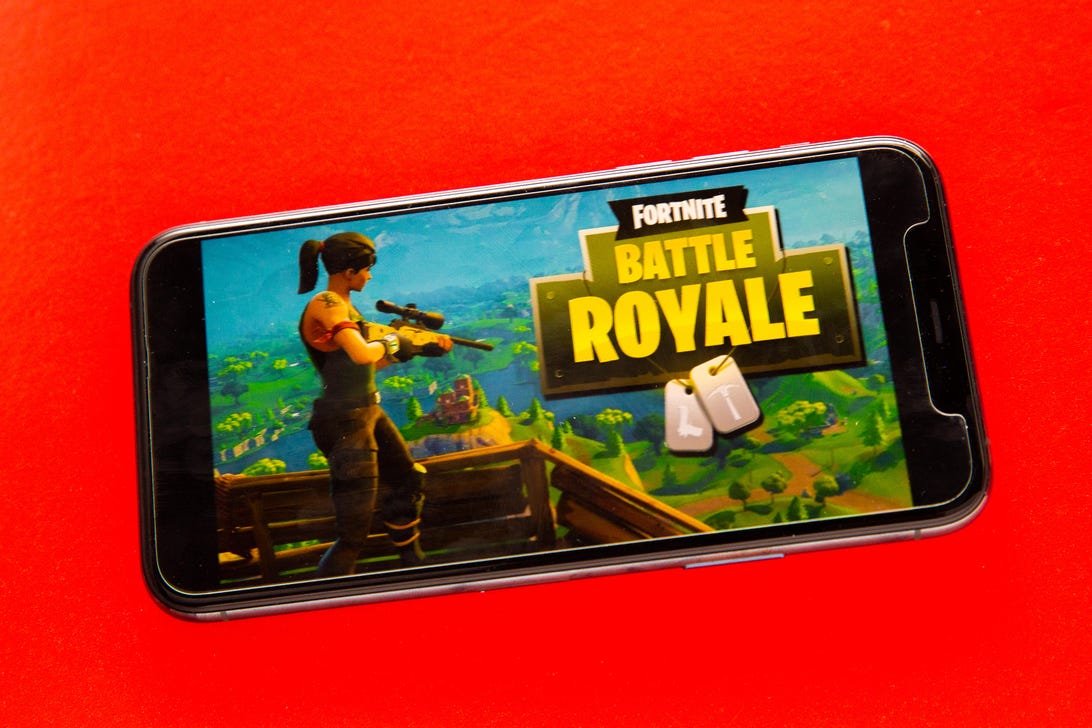

The battle between Apple and Epic Games continues.
Sarah Tew/CNETApple gained support in its argument for control of its App Store Thursday. In a series of filings related to Apple's ongoing court case with Fortnite maker Epic Games, a group of former national security officials, developers and pro-business advocacy groups largely said that the courts should not hamper Apple's approach to managing apps on its iPhones and iPads.
The briefs, more than a dozen in all, echoed many of Apple's concerns raised since it was sued by Epic over how it handles payments in its App Store. Apple says it should be allowed to moderate and control which apps can and can't be offered on an iPhone. Epic says Apple's approach is stifling competition.
A filing signed by former defense officials and leaders of US government agencies including the Central Intelligence Agency, National Security Agency and National Security Council told the court that forcing changes to Apple's App Store could lead to security problems, including malware and spyware.
As Apple has argued, the group said consumers should have a choice to buy products with a stronger approach to security. "If Epic were to prevail, competition for higher quality device security would be stifled, and courts would be forced into unwanted regulatory postures that would open the door for greater risk of security threats," the group wrote.
The hit online game Roblox wrote that its support for Apple comes from concern for its many users who are minors. "Apple's process for review and approval of apps available on the App Store enhances safety and security, and provides those apps greater legitimacy in the eyes of users," Roblox wrote. "This is an important benefit that all apps, including Roblox's, enjoy by choosing to be a part of Apple's ecosystem."
Epic declined to comment beyond its already filed arguments.
The briefings follow a series of arguments from both Epic and Apple as they appeal a ruling last year from a California District Judge that largely agreed with Apple's arguments that it had not breached antitrust laws. The case is currently before the US Court of Appeals for the Ninth Circuit.
Read more: Apple scores legal win over Epic in Fortnite lawsuit: What you need to know
The two companies began suing one another in August 2020, when Apple kicked Fortnite out of it App Store over a disagreement over its payments processing systems. Apple requires developers selling digital items, such as new looks for characters in a game, use its payment processing systems and pay commissions of between 15% to 30%, which Apple says helps to fund the technology and administration of its store.
The case and its appeals process, which is expected to stretch into next year, has drawn wide attention from the tech industry, lawmakers, legal scholars and policy experts hoping the case will either help lay foundations for updated approaches to antitrust laws, or potentially solidify ones already on the books.
As the case unfolds, Epic has found defenders as well. Microsoft, the Electronic Frontier Foundation and 35 states threw their support to the Fortnite maker in January, arguing in their legal filings that, "Apple's conduct has harmed and is harming mobile app developers and millions of citizens."
Read more: Epic's battle with Apple takes a turn as 35 states throw support behind Fortnite maker
The state attorneys general further argued that Apple has monopolized app-distribution and in-app payment solutions for iPhones, allowing it to "amass supracompetitive profits within the almost trillion-dollar-a-year smartphone industry."
California Attorney General Rob Bonta raised concerns about the case Thursday but didn't a take clear side. Instead, he argued the California Supreme Court should weigh in on how his state's Unfair Competition Law applies to the case. The law "has protected countless Californians from unlawful, unfair, and fraudulent business practices," he wrote. "It is essential that the Ninth Circuit, no matter the outcome of this particular dispute, interprets the law correctly." Beyond being Apple's home, California is also where the Fortnite case was filed.
The Department of Justice raised its own concerns about the case in a filing earlier this year, though it did not take a side. The department wrote that the district court "committed several legal errors that could imperil effective antitrust enforcement, especially in the digital economy." The DOJ specifically called out the court's interpretation of the Sherman Act, a key US antitrust law passed in 1890, saying it was read "narrowly and wrongly."









 Add Category
Add Category